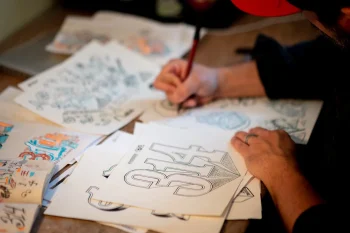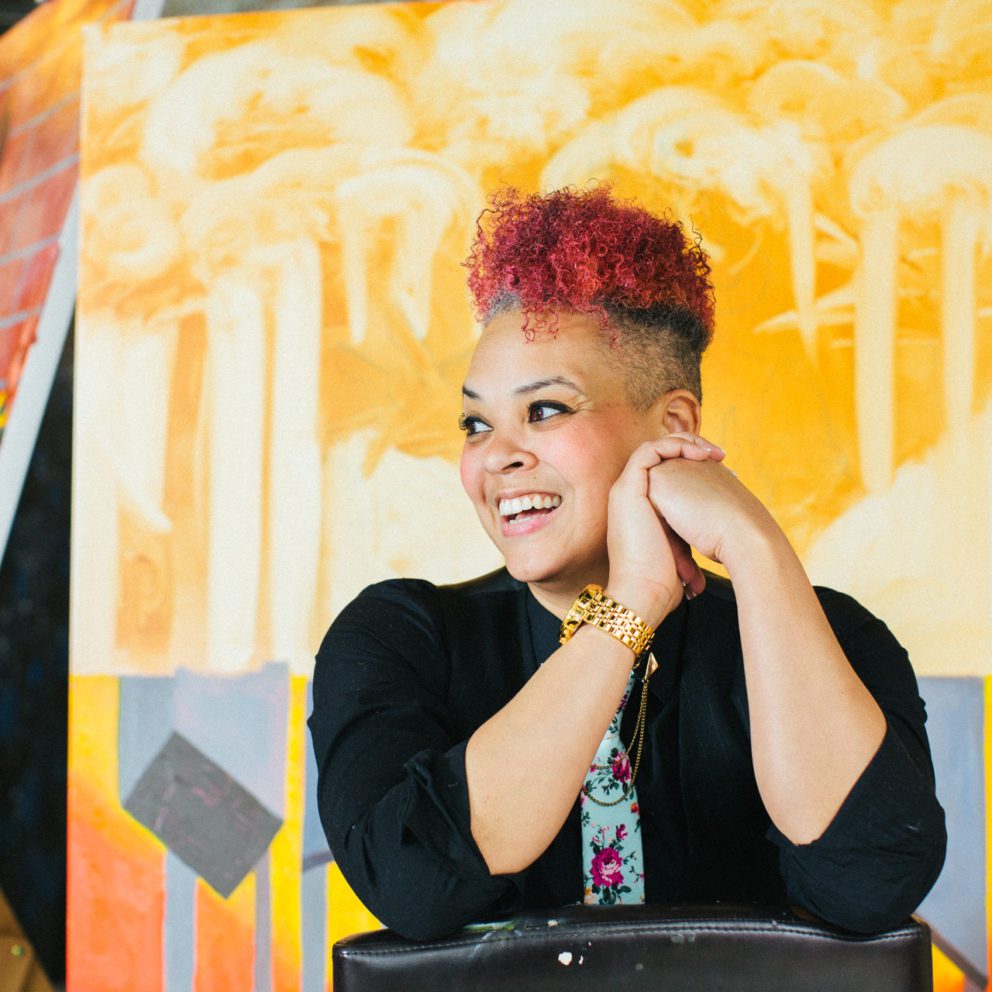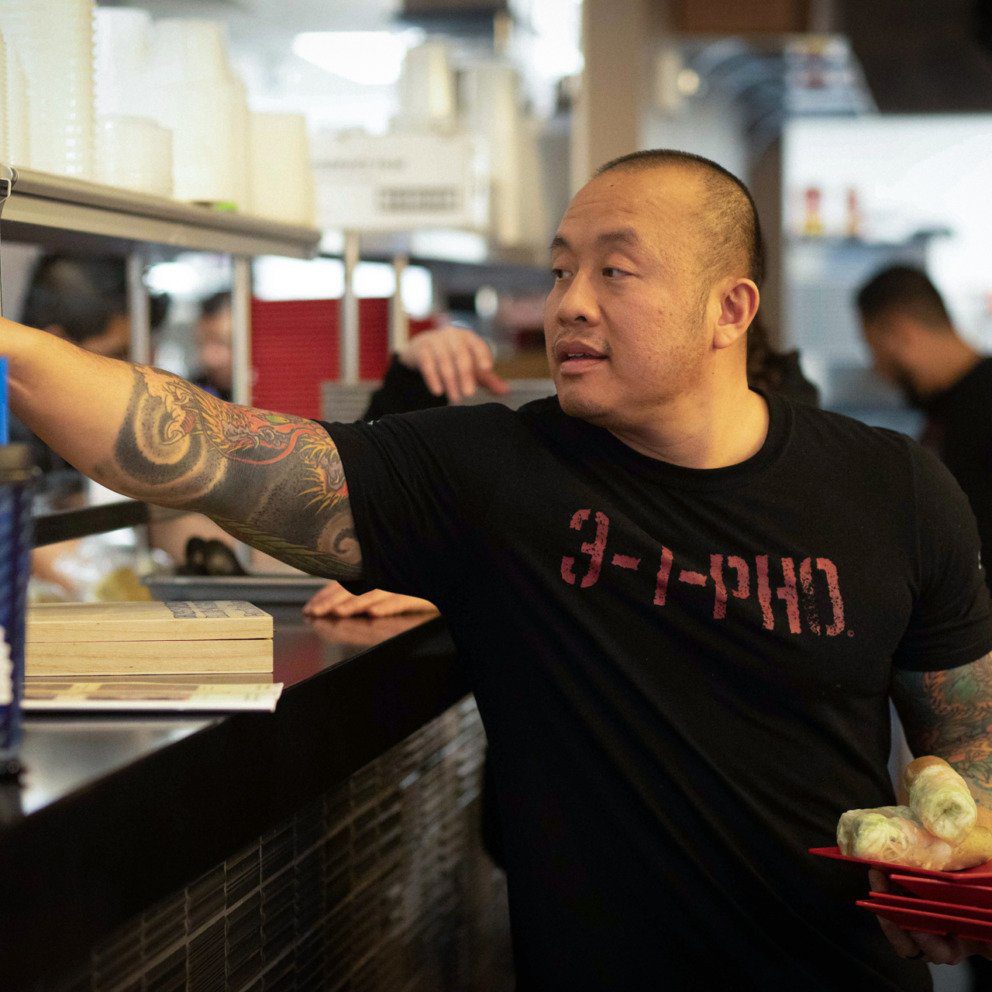Drawing Outside the Lines
Steenz Stewart has blazed their own trail in the comics industry to become one of the few Black cartoonists at the helm of a nationally syndicated strip.
Steenz Stewart has always been interested in art, especially illustration. Stewart, who uses they/them pronouns, was one of those kids who took every art class possible in high school, and when it came time to choose a major, studio art was a natural choice. After three years in college, though, Stewart left the art program. They couldn’t afford tuition without taking out additional loans, and had been told that an art degree could only result in one of two career options, anyway: gallery art or graphic design, neither of which appealed to Stewart.
“I didn’t feel like I was given much direction,” says Stewart. “There weren’t many options outside of general studio art for cartoonists, so I decided to take my chances and just hop into the workforce.”
But Stewart’s first job after leaving school would prove to be more than just a way to earn income; it would ignite their passion for an art form that would shape their career. That gig, as a manager at the comic store Star Clipper, allowed Stewart to connect with local creators and helped them find their footing in the comics industry. It also led to an important collaboration; while working at Star Clipper, Stewart met and nearly instantly clicked with Ivy Noelle Weir, a librarian-turned-writer and Stewart’s eventual creative partner. The two created a web comic with the hope of it becoming a graphic novel, knowing that if it wasn’t picked up for print, they would continue the project online. As luck would have it, the comic was picked up by Oni Press in 2015, and published in 2018 as the book “Archival Quality.” The project was a major turning point for Stewart; while they had worked on anthologies before, this was their first book deal.
“That’s really what opened up the doorway for me for the rest of my comics career, from editorial to community engagement to illustrating and making those comics,” says Stewart. “I definitely hopped right into the industry, just in a not-so-straight line … but once I got into the comics industry, it really just blossomed from there.”
Blossomed indeed: Stewart now has an impressive list of work under their belt with more to come. Stewart and Weir received the Dwayne McDuffie Award for Diversity in Comics for “Archival Quality,” and Stewart’s work has appeared in a number of anthologies, including Ink and Drink Comics, Elements Fire and Deadbeats. Stewart is also working with another creative partner, Sam Sattin, on an upcoming graphic novel, “Side Quest,” about the history of tabletop role-playing games.
What Stewart may be best known for, though, is writing and illustrating the nationally syndicated “Heart of the City” comic strip. Previously authored by Mark Tatulli for 22 years, Stewart took over the strip in May 2020. While readers can access those comics daily online or in the St. Louis Post-Dispatch, soon they’ll be able to read Stewart’s first Heart of the City collection, “Heart Takes the Stage,” to be published by Andrews McMeel in May 2022. The strip tells the story of a young girl, Heart, navigating the challenges of middle school and life as the daughter of a single mom.
While some may still think of comics as the “funnies” section of the newspaper, Stewart takes pride in covering heavier topics in their work, in addition to the occurrences of everyday life. Stewart and Aaron Cantu’s project on GPS monitoring of people charged with crimes, “When Innocent Until Proven Guilty Costs $400 a Month— And Your Freedom,” won an award from Evident Change for 2021 Media for a Just Society. Stewart also contributed to the anthology “Mine! A Celebration of Liberty and Freedom for All, Benefitting Planned Parenthood,” which won the 2018 Ringo Award for Best Anthology.
Stewart feels strongly that real-life experiences have a place in comics.
“I think that’s one of the coolest parts about comics— that it’s just a medium, and you can do absolutely any kind of genre in it,” says Stewart. “It really just depends on the story that you want to tell.”
Since first experiencing St. Louis’ comic scene at Star Clipper, Stewart has been impressed with the opportunities to connect with others interested in the genre, from Ink and Drink, which creates bi-annual and genre-based anthologies by Midwest artists, to programming at the Wizard’s Wagon store in the Loop. Stewart has had a hand in building connections within that community, too, through Comics University, an educational program they ran for six years at the St. Louis Public Library.
“St. Louis has such a vibrant comics community, and there are a lot of people who just want to get their name out there and get started,” Stewart says.
In addition to their writing and illustrating work, Stewart is helping cultivate a passion for comics in the next generation of artists and writers through their work as an adjunct professor at Webster University. They make sure their students understand there are options outside of becoming a comic book illustrator if they are interested in a career in illustration – something Stewart wishes they had known when they were a college student. Stewart also instructs their students to not let self-doubt hold them back.
“I know so many creators out there are kind of paralyzed by this fear that they’re not good enough … Well, I don’t think any artist is ever going to be 100 percent happy with the work that they do,” says Stewart. “You just have to keep making it. It’s hard to look at your own stuff and not see mistakes, but if you let those mistakes keep you from making art, you’re never going to make it.”
As a Black nonbinary person, Stewart began their career with a goal of ensuring people who looked like them understood they could be a part of the industry. Ten years later, while there’s still room for improvement, Stewart sees a lot of positive change when it comes to diversity and inclusion with authors and illustrators. They now want to see that representation extend to parts of the industry outside of creation like sales, marketing, community management and publishing.
It’s gratifying for Stewart to know that their work and visibility are making an impact. They recall a moment where that hit home when they were teaching a Comics University course.
“It just so happened that day, when I was teaching, a Black girl came in and was like, ‘I had no idea that there are people that look like us that made comics; this is exactly what I want to do and I don’t think it really clicked that this is something I want to do until I saw you talking about it,’” says Stewart. “So, I definitely want to make sure that my visibility is very high — because seeing is believing.
“You don’t really know if you can actually do something until you see someone that looks like you doing it.”
Join the Story
- Read Heart of the City here.








